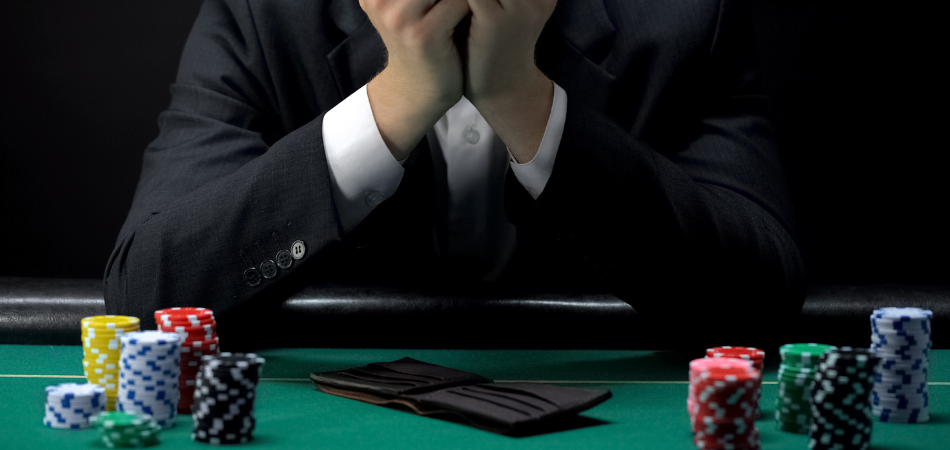
Written by:

Medically Reviewed by:
Last Updated:
February 14th, 2025
Behavioural addiction
Do you regularly browse the internet until the early hours of the morning even though you need to be up the next day? Or perhaps you spend all your money gambling or shopping, leaving none left for food or rent. If these scenarios sound familiar to you, then you may have a behavioural addiction. Also called process addiction, a behavioural addiction is an often-misunderstood condition which can have a serious impact both on you and your loved ones and leave you feeling helpless and isolated. However, it is important to know that you are not alone. With the right treatment and support, it is possible to overcome a behavioural addiction and lead a healthy, happy life.

How does behavioural addiction develop?
Behavioural addiction is when you find yourself compulsively engaging in a certain behaviour, despite it having a negative effect on your life. Some people only engage in one addictive behaviour while others may be addicted to multiple behaviours simultaneously and also have another addiction to drugs or alcohol.
On a physical level, behavioural addiction develops the same way as substance addiction:
When you go shopping, eat your favourite food or win a hand of poker, it causes the brain to release feel-good chemicals called endorphins. These endorphins give you a natural high which makes you feel good in the short term, and then eventually wears off.
For most people, the activities above are just a harmless way of enjoying themselves. The individuals can stop when they want to and wait for the next shopping trip, meal or game night. For others, however, repeating these behaviours can prompt them to develop a dangerous tolerance where they feel they must engage with the same behaviour more and more frequently to feel the same high.
Much like substance addiction, in time, these behaviours can quickly spiral out of control. Taken down a dangerous path of dependence, you may find that you no longer have any power over your habit, engaging in the addictive behaviour repeatedly, even though it is now causing you pain rather than pleasure.
What causes behavioural addiction?
There are a number of risk factors which can make you more susceptible to developing a process addiction. These include:
- Genetics: You are more likely to develop a behavioural addiction if you have a family history of addiction as the condition is thought to be partly due to genetic disposition.
- Environment: If you grow up in an environment where behavioural addiction is prevalent, you are more likely to develop an addiction yourself. This is especially true when you are exposed to addictive behaviours at a young age.
- Trauma: Experiencing a traumatic event such as abuse, neglect or the death of a loved one can increase your risk of developing a behavioural addiction. This is because you may turn to addictive behaviours as a way of numbing the pain and distracting yourself from unpleasant thoughts and memories.
- Mental health: If you have another mental health condition, such as anxiety, depression or PTSD, you may engage in addictive behaviours to help soothe the symptoms. However, what often happens is that the underlying mental health issue fuels the behavioural addiction and vice versa, ultimately making both conditions worse.
What are examples of behavioural addiction?
There are a number of different addictive behaviours which affect people across the UK. Some of the most common include the following:
Gambling addiction
This may include betting on sports events, visiting the casino compulsively or having no control over your online gambling behaviour.
Internet addiction
Internet addiction involves compulsively browsing websites, social media and other online resources.
Sex and love addiction
Sex and love addiction are the compulsive needs for romance or sex even though they are causing damage to you personally and to your relationships.
Food addiction
Food addiction is a compulsion to keep eating long after you are full. It can lead to a number of serious physical and mental health issues.
Eating disorders
There are a number of different types of eating disorders, each with their own symptoms, but all involve an unhealthy relationship with food.
Do I have a behavioural addiction?
Recognising that you have a behavioural addiction is often hard as most addictive behaviours are normal, everyday activities that many people enjoy. However, there are some questions that you can ask yourself which may indicate you need behavioural addiction help:
- Do I keep engaging in addictive behaviour even though it is causing me problems?
- Has my behaviour affected my relationships, job or money?
- Have I tried to stop but been unable to do so?
- Do I try to hide my behaviour from others?
- Do I spend a lot of time thinking about the behaviour or planning when I can do it next?
- Do I continue to engage in the behaviour even though I no longer get any pleasure from it?
- Does the behaviour give me a fleeting sense of relief or pleasure that is quickly followed by feelings of guilt, shame or anxiety?
If you have answered yes to any of these questions then it is likely that you have a behavioural addiction and may need help to overcome it. Behavioural addiction can ruin lives and so the sooner you seek help the better.
The effects of behavioural addiction
The effects of behavioural addiction can be wide-ranging and destructive. They not only impact you but also those around you such as your family, friends and colleagues. Some of the ways in which behavioural addiction can affect you include:
- Relationship issues: Addictive behaviours can damage your relationships as you become more and more focused on the behaviour to the exclusion of everything else. This can lead to lies about your behaviour, arguments, break-ups and divorce.
- Work problems: Your addiction may cause you to lose focus at work, make mistakes or take time off due to illness, lack of sleep or depression. In severe cases, you may even lose your job as you are unable to fulfil your duties or are continuously absent.
- Financial issues: Addictive behaviours can be expensive and so you may find yourself in debt or having to borrow money to fund your addiction. This can cause a lot of stress and lead to financial problems both for yourself and your family.
- Physical health conditions: The physical effects of behavioural addiction can be wide-ranging and depend on the specific addiction. For example, internet addiction can lead to sleep deprivation and back pain. In some cases, the physical effects of behavioural addiction can be deadly, such as when someone with an eating disorder develops organ failure.
- Mental health conditions: Many behavioural addictions can both exacerbate existing mental health conditions and trigger new ones. For instance, losing all your money as a result of gambling addiction can lead to anxiety, depression and even suicide.
How is behavioural addiction treated?
There are two main stages to behavioural addiction treatment: rehab and aftercare.
Behavioural addiction rehab
The aim of rehab is to help you understand the underlying causes of your behavioural addiction so that you can learn to manage it in a healthy way. At Liberty House, behavioural rehab takes place in a residential setting where you will have 24-hour support from medical and mental health professionals.
During your stay, you will take part in behavioural addiction therapy sessions, workshops and group activities with other residents. This will give you the opportunity to focus fully on your recovery and also to form relationships and bonds with the other staff. The connections made in behavioural rehab can be crucial for successful recovery because they provide support both during your stay and after you leave.
The most effective behavioural addiction treatment programmes combine a range of different therapies to focus on every aspect of the addiction. At Liberty House, these include:
- Individual therapy: This is a chance for you to discuss your behavioural addiction with a qualified therapist (who themselves have been through recovery) in a safe and confidential setting. Individual therapy can help you to understand the root causes of your addiction and start to develop healthy coping mechanisms.
- Group therapy: Group therapy involves taking part in sessions with other people who are also struggling with addiction. This can be a valuable opportunity to share your experiences, learn from others and develop a support network which will help you during and after behavioural addiction rehab.
- Cognitive behavioural therapy (CBT): CBT is a talking therapy that can help you to understand your thoughts and behaviours and how they are linked to your behavioural addiction. It can also help you to develop new, healthier ways of thinking and behaving so that you don’t relapse in difficult moments.
- Dialectical behavioural therapy (DBT): DBT is a type of CBT that focuses on helping you to manage your emotions. It can be particularly helpful for those with behavioural addiction because it can help you to exercise impulse control.
- Yoga therapy: Yoga therapy can help to calm and focus the mind which can help in moments when you are struggling with cravings or urges. It can also help to improve sleep and reduce stress levels, both of which are important in behavioural addiction recovery.
Aftercare
Aftercare is an important part of behavioural addiction treatment as it helps to prevent relapse. At Liberty House, we provide all clients with one year of free weekly group therapy sessions after they leave our clinic. This will give you the opportunity to stay connected with the friends you made in rehab and continue to receive support and advice from our team of experts.
In addition to aftercare, we will also invite you to join our Alumni programme. This is a network of past clients who stay in touch and support each other through their recoveries. Being part of this community can provide invaluable ongoing support, motivation and inspiration.
What next?
If you are struggling with behavioural addiction, get in touch with ustoday to find out how we can help you. We offer a number of different behavioural rehab programmes ranging from two weeks to twelve weeks so you are sure to find one that suits your schedule and which can help you overcome your behavioural addiction.










